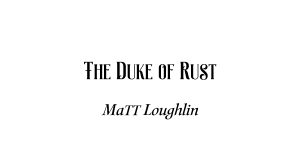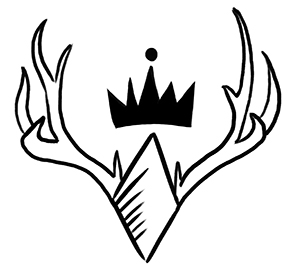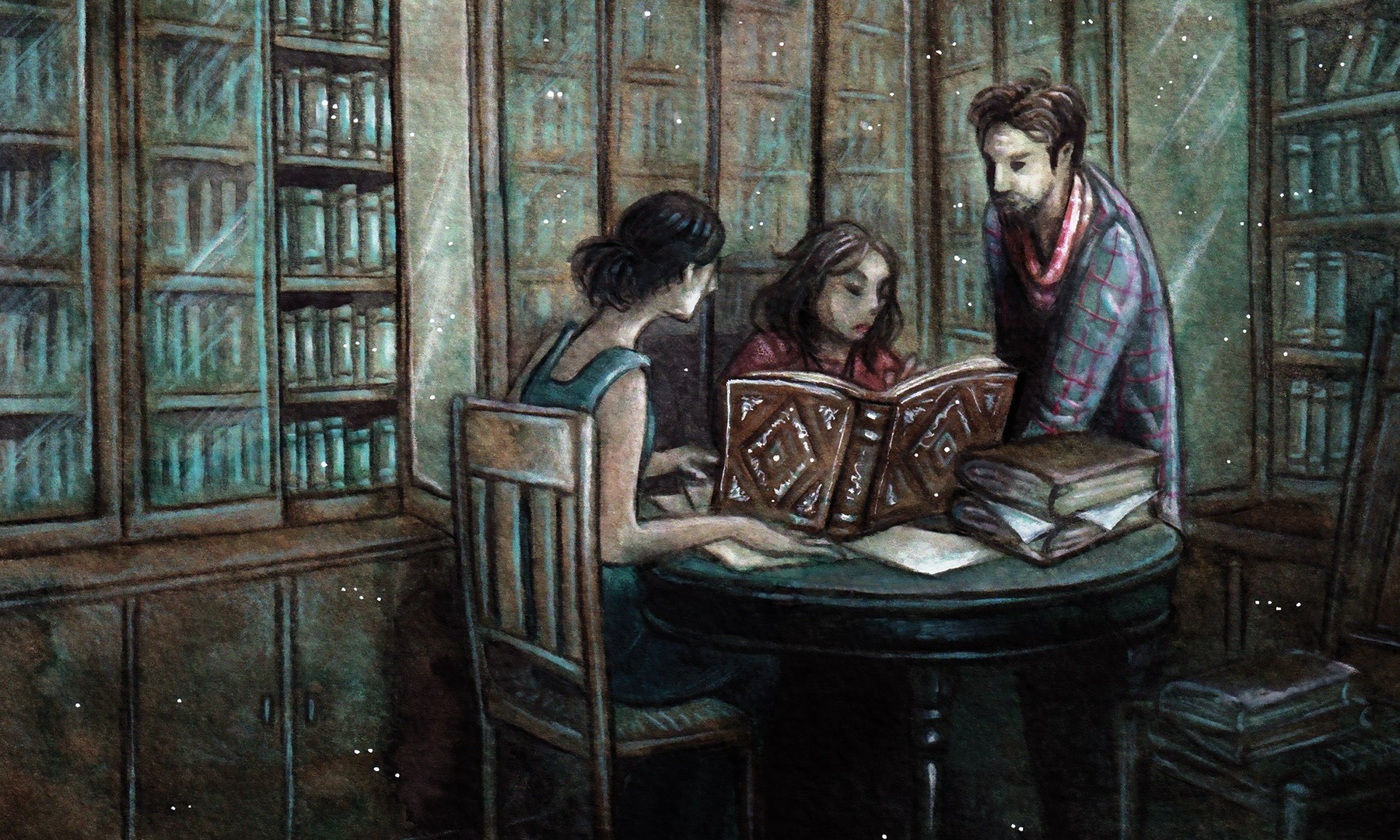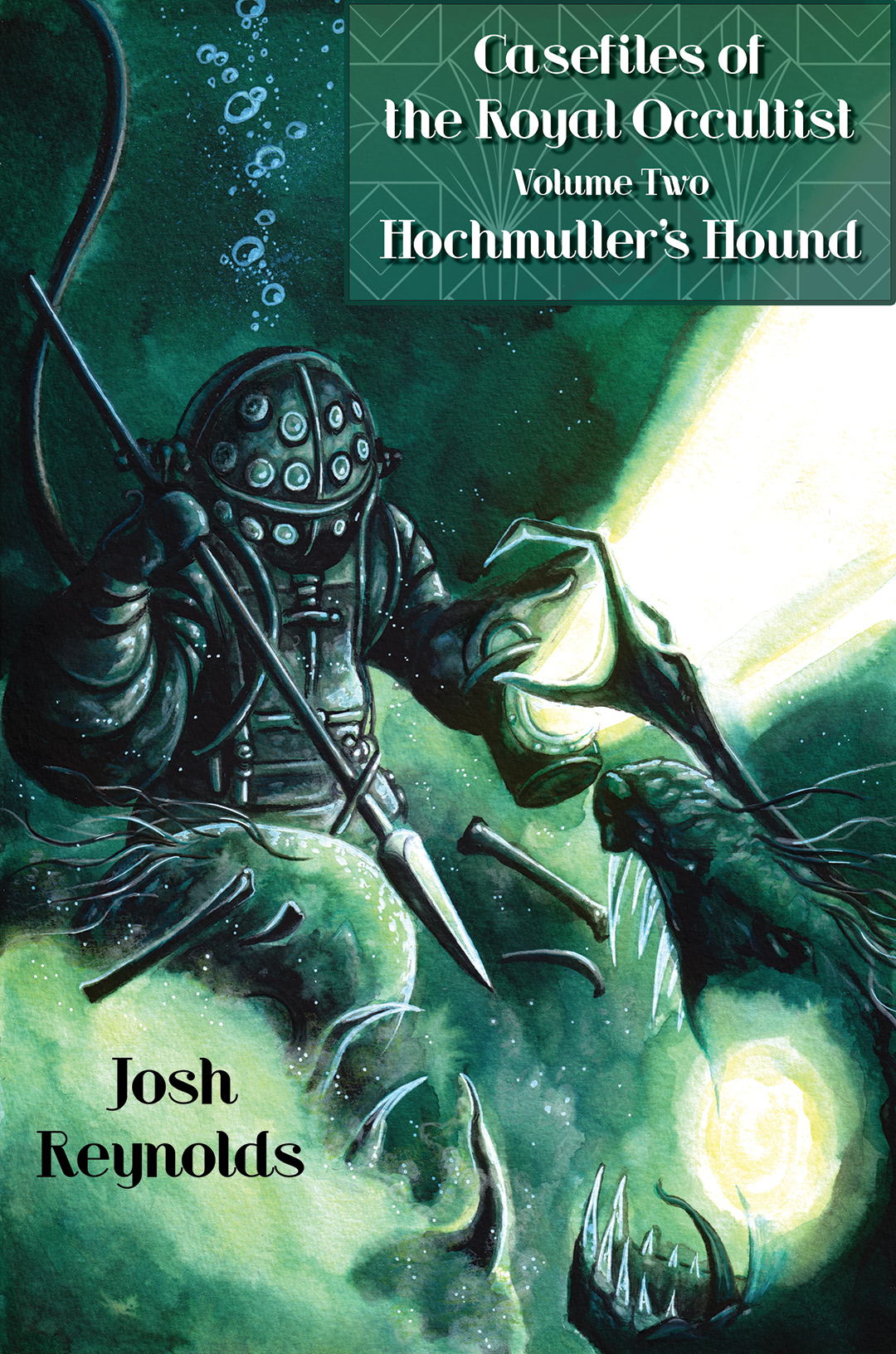
We’re pleased to present our next excerpt from The Chromatic Court – an exclusive look at MaTT Loughlin’s “The Duke of Rust.”
EBOOK
18THWALL | AMAZON US | AMAZON UK

“Dammit!” Cricket Simmons shouted. He’d missed his train. Out of breath, he stopped and let his roller-case fall to the ground. Ha—roller-case, indeed. The damn thing barely rolled, bucking and turning as he ran, like a stubborn bass fighting a line. He kicked the case and called it a bastard. Better to blame the shortcomings of his luggage than his own.
Still, he felt like a victim of circumstance. There was supposedly work being done on several of the main train lines, which had forced interruptions into normal service. As a result, he’d had to endure two frantic transfers just to get to this point. And this train (or, rather, that train—the train that he was now losing sight of around a bend) would have finally brought him to the airport. But his last train had been late, which forced him to have to run down the platform, up across an overpass, and down to the platform on the other side to catch his connection—which he’d missed.
He sighed. He hated running, especially when it got him nowhere.
Cricket had really like England up until this point. The trip to Bristol, where he’d attended a tattoo convention, went smooth enough. As did his trip down to Cornwall to visit a friend. But the journey home was gearing up to be a real bastard. At this point, Heathrow Airport seemed like a distant dream, some mythical place. El Dorado. Atlantis. Heathrow.
Huffing and sweating and still whispering abuse to his roller-case, Cricket looked up at a digital time display above him: an hour and a half. That was how long he was going to have to wait for the next train. Dammit.
He trudged over to a bench and plopped down on it. He looked around: It was the middle of the afternoon but both platforms were empty; they looked abandoned, a place the world forgot. He pulled out his phone, then put it back in his pocket, sick of looking at the damned thing. He wished he had a book to read, even though he never read. He thought about digging through his case for his headphones, but his will had left him.
He could do a bit of a drawing. He had a few tattoo commissions coming up, and it would be smart to get a jump on the artwork. But his pens and paper were in his case, too, so he wouldn’t be doing that either. He felt like doing nothing, felt tired, fatigued, and hopeless that he’d ever make it on the plane back to LA. He still had four hours until his flight, plenty of time, but the way his day was going the next train would probably be late, too. He decided to push that chain of thought out of his mind for the time being; no sense in worrying about something you have no control over. He’d just wait for the next train, keep his fingers, toes, and testicles crossed that it wouldn’t be late. After about fifteen minutes of sitting there, watching a bird pick at something dead between the tracks, Cricket decided to wander around a bit. He still had over an hour until the train came. What else was he going to do?
The station was surrounded by a quaint little village named Dingle Mockbridge, which made Cricket smile. The British and their quaint yet crazy names. He’d driven through a village called Buttsbear Cross in Cornwall, no lie. This place, like most of the places he’d been in the UK, looked old. Really old. The cobbled streets and stone cottages with their tilting slate roofs made you feel as though you had wandered onto the set of a costume drama. Cricket loved that about the UK, how it exuded deep history and almost brought you back and forth through time.
His first stop was the pub, which was just across the street from the train station. It was called The Purple Hen, and though he couldn’t quite put his finger on why, he thought the place was well-named. He ordered a pint of whatever had the highest alcohol content and settled into a window booth next to the front door. As he sipped his beer—which tasted like a musty old dishcloth—he watched the empty street through a bleary stained-glass window.
Absolutely no one was around. In fact, since he’d stepped foot off the train, the bartender who served him was the only person he’d seen. It was weird, even for a little village in the middle of nowhere. The bar, like the town, was empty and lifeless; it didn’t even have Wi-Fi.
Twenty minutes later, after fiddling on his phone and choking down the rest of his stale beer, Cricket found himself standing on the street again, wondering what to do next. He walked aimlessly up and down the main street, desperate for something interesting to jump out at him, but nothing did. He’d given up and decided to go back to the train station when he noticed a little sign tacked to the corner of a weather-beaten barn. It read: THIS WAY TO THE EMPORIUM. A blue, sun-cracked arrow pointed down a narrow path to the right of the barn. What the Hell, Cricket thought, at least the detour would burn up a few minutes. So, he turned right and followed the narrow, winding path lined with vines and fragrant honeysuckle. It led between the backs of houses to a ramshackle structure that Cricket realized was tacked onto the back end of the train station. It was long and lopsided, made of what looked like painted sheets of corrugated steel. Still, the place had a shabby sense of dignity to it. The building was freshly painted and there was not a spec of litter in the vicinity. Whoever ran this place took pride in their work and tried to wring every ounce of aesthetic pleasantness they could out of what might have once been a rough-shot utility shed or storage depot. He climbed the metal stairs and peered through a spotless Art Deco glass door: it was an antiques shop, and it was full from floor to ceiling. Deciding to err on the side of caution, he parked his roller-case outside and went in. He doubted someone would take it, and if they did, they wouldn’t be able to run away with the damn thing. It wouldn’t let them.
A tiny bell rung as he entered the shop. An ancient man reading a paper sat behind an equally ancient oak desk. The man nodded to Cricket but did not look up. The air was redolent of pipe tobacco and wood polish, as cool as a wine cellar. Antique lamps hung from the cheap drop-ceiling and dimly illuminated the cluttered interior, which seemed much larger and more cavernous than you would have believed from the outside. The aisles were crammed full of old chairs, tables, writing desks, and china cabinets which were, in turn, densely covered in all manner of lamps, vases, statues, and paintings. Stacks of books, dolls, bric-a-brac, and knick-knacks covered whatever scarce niches remained. The place was so full that Cricket was forced to walk sideways like a crippled crab through much of the place, his arms glued to his sides for fear of accidentally upsetting the precarious architecture. He was amazed at how expertly the place had been assembled, every inch of space utilized. Despite the cramped conditions, everything was dusted and spotless. The owner of this cluttered museum, this hoarder with OCD, ran a tight ship. Nothing had a price on it, and Cricket hoped the owner might be a haggler—not that he was planning on buying anything.
After a while of wandering through the store, the old man peeking at him over the top of his newspaper from time to time, Cricket found himself in front of a large, ornate bookshelf full of austere leather-bound books. He ran his eyes along the spines and beautifully rendered gold-leaf titles jumped out at him; they seemed to be old medical books with titles like A Treatise on the Particulars of Hand Anatomy and Remedies For Digestion and The Testicle. The bookcase itself was equally impressive. Standing over seven feet tall, it was covered in intricately carved geometric shapes, which did not speak to any specific era or period of creation. Evil-looking cherubs, whose eyes seemed to follow you, adorned the top edges of the bookcase, standing in defiant contrast from the rest of the piece. A white book, laying horizontally across the top row, caught Cricket’s eye. He pulled it down and turned it over in his hands. It was bound in pearl-white leather and had no title on the spine or either cover. The bottom right corner was black and crispy from fire damage, as though it had been plucked from the pyre of some long-forgotten inquisition. With great care, Cricket cracked the book open somewhere in the middle, gently prying the pages apart, involuntarily holding his breath as he did. You break it, you buy it quietly ringing in his ears—despite the fact that almost half of the book looked like burned toast. He didn’t think that would matter to the stern old bombardier behind the old desk, though.
From the moment his eyes caught the yellowing pages, Cricket was transfixed. Page after page was full of archaic diagrams, runes, and every sort of occult-oriented imagery and symbol you could imagine. He had always been obsessed with the occult, though not in a religious or ideological way. He loved the imagery that was involved. Skulls, crosses (both righted and inverted), sigils, ancient characters from lost alphabets—it all fascinated him. He loved the symbolism at work, even though he had no clue what anything meant beyond their superficial forms. Back home, in LA, he had a fairly substantial library of books filled with occult symbols and imagery, but there was stuff in this old, half-burned book that he’d never seen before, stuff that was more interesting and visually arresting than anything in his books at home. There were complex charts filled with what looked like zodiacal signs; there were beautifully rendered drawings of demons and monsters and witches and ghosts; and here—towards the back of the book—was an actual chapter about tattooing symbols on the body. How cool.
Simply put: The book fascinated him. It had everything he could ask for, and more. As he flipped from page to page, he thought about all of the cool tattoo designs he could make from the stuff in them. He attempted to read some of the text, but it was in Latin and he quickly lost interest. It was the pictures that mattered to him. He snapped the book shut, excited to have found such a treasure. Now all he had to do was buy the damned thing. Knowing his luck, the old man would probably look the book over and say it was not for sale after being struck by a pang of hoarder’s remorse. But that was not the case. In fact, the old man seemed quite uninterested in the tome he was reading and barely looked at the thing before mumbling “That’ll be ten pounds, please.”
It took a moment for his eyes to adjust once Cricket was outside, as if he’d just emerged from a cave. In the distance, he heard the thrum of an oncoming train. He looked at his watch. His train was due in five minutes! He grabbed his roller-case by the handle and, for the second time that day, made a mad dash for his train.

Cricket made his train, though just barely. His flight was scheduled to be almost twelve hours long, and he’d planned to sleep for most of it. Instead, he found himself hunched over his new book, sketching tattoo designs. As he disembarked at LAX, he realized he’d filled half of his notebook with new designs. He closed the burned book, kissed it, and dropped it in his bag, excited at the prospect of mining more material from its brittle pages. As he stood, he cringed at the metallic taste the book left on his lips.




